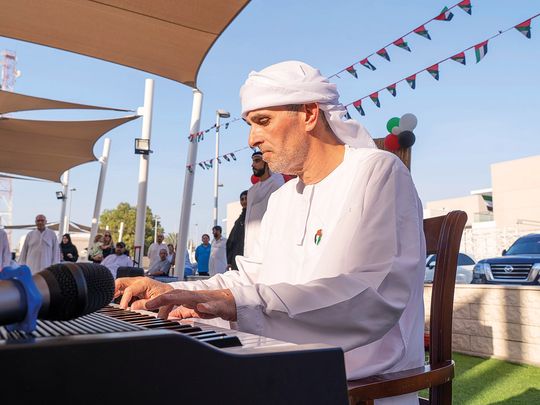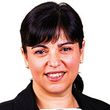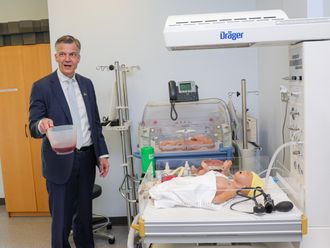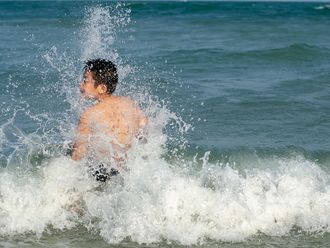
Abu Dhabi: When Khaled Moustafa, an Egyptian expat in Abu Dhabi, experienced a tingling sensation down the right side of his body last year, he had no idea he was suffering a stroke.
A piano teacher, he lost movement in his arm and leg and faced difficulties in speaking. His underlying health conditions, including diabetes, high blood pressure, and shortness of breath, had led to this sudden, life-altering diagnosis.
Marking World Stroke Day (October 29), the 56-year-old Egyptian has shared his experience.
He was admitted to Cleveland Clinic Abu Dhabi, where he underwent carotid stenting, a treatment designed to reduce the risk of stroke in individuals with significant carotid artery blockage. He spent 12 days under the care of medical staff but faced a long journey to recovery.
For rehabilitation, he was transferred to Amana Healthcare, which provides medical, nursing, and therapy care for patients with a broad spectrum of needs.
At the hospital, Moustafa developed friendships with people in similar situations, making him feel less alone. As his strength slowly returns, he enjoys participating in various activities, including playing the piano for other patients and at events held throughout the year.
Moustafa expressed his appreciation for the care provided by the multidisciplinary team, especially patient care assistant Nouf Al Wahdi.
“She works tirelessly to help us overcome obstacles, addressing not only our physical needs but also ensuring our mental and psychological well-being by quickly resolving any related issues,” he said.
Nouf noted that Moustafa’s continued practice of music has supported his recovery.
“He is always responsive to suggestions regarding his physical therapy. I’m glad he continued practicing his music here, as it really aided his recovery. His musical performances bring happiness to other patients,” she said.
Once fully recovered, Khaled looks forward to pursuing his music career again and getting back to his life.
'BE FAST'
A stroke occurs when blood flow to a part of the brain is blocked, necessitating immediate medical attention. Risk factors include hypertension, smoking, high cholesterol, heart disease, and a history of strokes, particularly in those over 55.
Timely recognition and swift action are critical to improving outcomes, and the ‘BE FAST’ method helps identify key symptoms: sudden loss of balance (B), changes in vision (E), facial drooping (F), arm weakness (A), slurred speech (S), and the need to call emergency services (T) immediately if any symptoms appear.
Dr Victoria Mifsud, staff physician, Neurological Institute at Cleveland Clinic Abu Dhabi, underlined that “time is one of the most critical factors” in successful stroke treatment. It’s essential that both patients and healthcare providers act swiftly as it makes all the difference between full recovery and long-term disability.”
Dr Mifsud pointed out that Cleveland Clinic Abu Dhabi, recognised as a centre of excellence for stroke care by the Department of Health – Abu Dhabi, has developed a stroke response system and uses imaging technology enhanced by AI to rapidly diagnose and treat strokes within 35 minutes – well below the global standard of 60 minutes.
Control the risk factors
While age and genetics are unavoidable risk factors, others, like hypertension, smoking, and diabetes, can be controlled. Lifestyle adjustments, maintaining a healthy weight, exercise, regular screenings, and early detection reduce stroke risk and enhance preventive care.
Dr Brajesh Mittal, consultant interventional cardiology at Medcare Hospital, Al Safa, Dubai, noted that hypertension is a crucial risk factor, and there needs to be a greater awareness of its different types.
“Primary hypertension, or essential hypertension, has no specific cause. It is influenced by genetics and lifestyle factors, like obesity, high-calorie diets, and high salt intake. Obesity can increase blood pressure through artery stiffening, kidney function changes, and hormone release.
It also leads to obstructive sleep apnea, further raising hypertension risk. Secondary hypertension results from identifiable conditions, such as kidney disease, endocrine issues, or vascular disease. Up to 95 per cent of cases are primary hypertension,” Dr Mittal said and noted that proper blood pressure management reduces risks.














